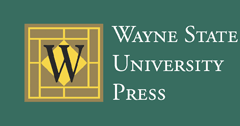Storytelling, Self, Society Guidelines for Book and Performance Reviews
SSS reviews endeavor to cover a range of topics and genres related to storytelling. Reviewers come from a wide range of disciplines, and approaches to particular books, recordings, or performances will reflect those differences.
Book reviews may cover works on storytelling as a performing art, as vernacular communication, as a method or modality in social sciences, education, business, organizational development, health care, ministry, law, community advocacy or organizing, etc. We ask that reviewers consider as a primary reference point the oral and performative aspects of the subject matter, and that they strive to illuminate the disciplinary sources and interdisciplinary connections of works under review.
We are particularly interested in performance reviews of work in related genres such as autobiographical monologue, theatrical solo performance, stand-up comedy, folk music, folktale adaptation, or blended genres. We look for writing that goes beyond celebration or disapproval to raise critical issues of tradition, technique, story form, and performer-audience relationship.
Reviews for SSS should be both a critical summary and analysis of the work: its themes, topics, intended audience, range, accomplishments, and limitations. Comment upon and evaluate the work in the light of relevant issues and theoretical concerns. The review should ideally illuminate the work in the context of the author or performer’s broader experience and agendas. Strengths and weaknesses of the work should be addressed in a clear-eyed manner, supportive of the diversity and dignity of the field. Reviewers should expect and welcome editorial input, as befits a primary peer-reviewed resource in the field.
Plan to write a review of 1000–2000 words. Review essays covering more than one work can range from 2000–4000 words. Feel free to write more or less depending on the scale and demands of the item(s) under review.
Book reviews should be submitted electronically to John Gentile at jgentile@kennesaw.edu, either as a cut-and-paste inside the body of the email or a Word document attachment. Performance reviews should be submitted to David Novak at david@david-novak.com.
By submitting your review to SSS you represent that the review is your own work, that it is original to SSS, and that it is unencumbered by any existing or anticipated contractual relationship; further, you are granting SSS permission to publish your review, including any editing the SSS team finds necessary and appropriate. (Major edits will involve consultation via email or other means.) If you’ve reviewed the book elsewhere please be sure that your review for SSS is substantially different. Please supply your title, e-mail address, and phone number along with complete contact and mailing information.
Format:
At the beginning of any review, include:
- Title (with edition if appropriate)
- Names of authors, editors, or artists
- Year of publication
- Name and complete address of publisher
- For books: page number, ISBN, price, and whether available in hardback or paper
- For recordings: studio, copyright date, ISBN if any
- For performance: date, location, venue
- All reviews must include full bibliographic information
At the end of the review, include for publication your name, degree, title, organizational affiliation, city, state, and email address.
A Note on Tone:
One of the major goals of Storytelling, Self, Society is to create models for critical writing on traditional and contemporary storytelling performance, as well as critical dialogue on scholarly and popular writing in the field. Just as our articles attempt to express the boundaries and relationships of constituent disciplines within the field, so should our book and performance reviews. Thus it behooves us to think carefully about the distinguishing characteristics of the field, and to reflect that character, not simply in the content and selection of our reviews, but in their tone and sensibility.
Storytelling is an art form and art world that expressly values community. A recurrent motif in storytelling discourse is the power of storytelling to create community, to transcend boundaries, and bring people together. It is often said, following Ong and his school, that orality unites, while the analytic impulses of literary consciousness divide. Storytelling is a relatively small art world that, even more than other art worlds such as literature, visual arts, and theater, is built on relationships. Thus in venturing into the contested terrain of storytelling criticism it is important that the editors and authors strive to connect rather than divide, to maintain a tone of respect and appreciations for different styles and registers of storytelling work, whether in performance or print, in order to support the amity and cooperative spirit of those relationships. It is important to acknowledge that academic components of the contemporary storytelling world are modest in proportion to its popularly-oriented venues and products. It is crucial to recognize and illuminate distinctions of intention, complexity, experience, and scope, without creating rigid hierarchies of value based on those distinctions. It is important that reviewers state their own point of view (positionality) in relation to the work at hand, without apology or defensiveness, but also without implicit or explicit assumptions that theirs is the only valid position from which way to view the work. We encourage use of the first-person pronoun, in reviews as well as articles, to avoid the mandarin posture of omniscient judgment.
The first job of a reviewer for SSS is to illuminate the sources, significance, and values of a storytelling work. If the reviewer is convinced that the performance or publication is lacking in significance and value to the field, the first recourse is not to review the work at all. If the work poses a perceived threat to the integrity of the field (such as a work that appropriates cultural material in an exploitative fashion, or appropriates the name of storytelling in a way that distorts the oral traditions and roots of the field), reviewers should expect to work closely with the editors to shape a critical alembic that properly separates the elements of error from the animating ideal.
